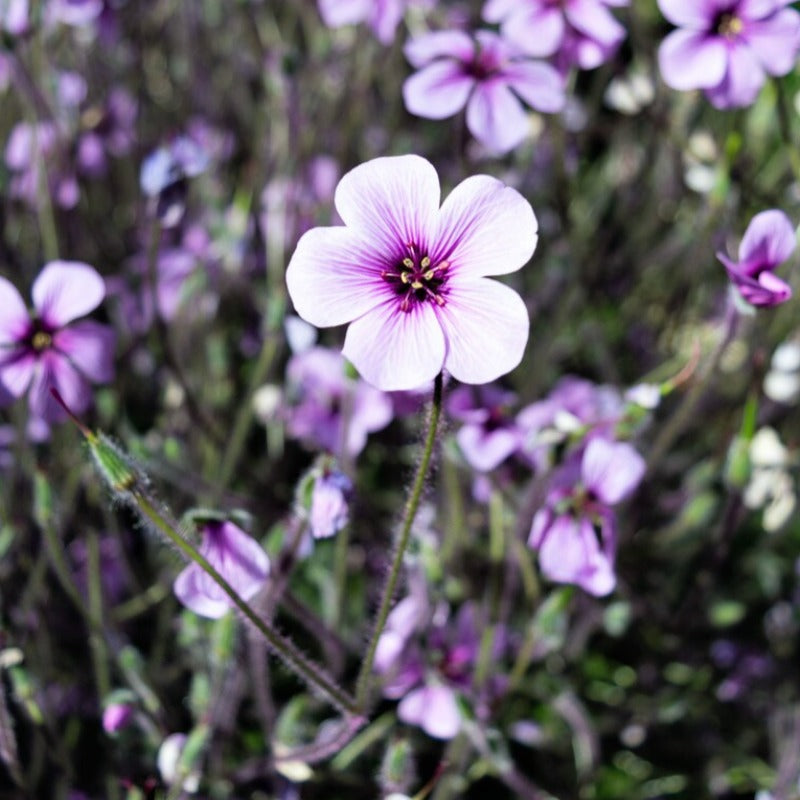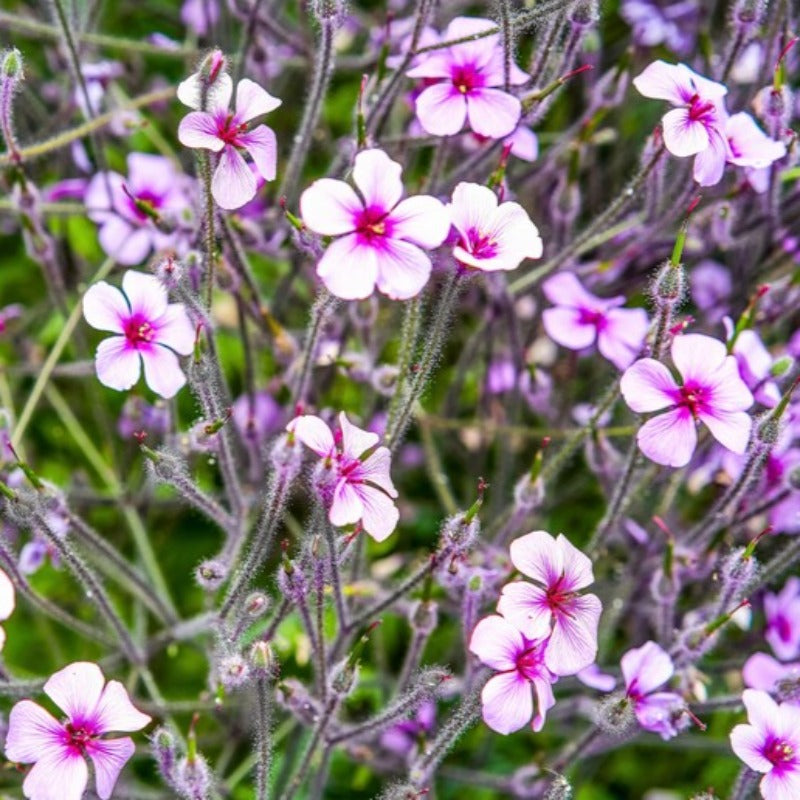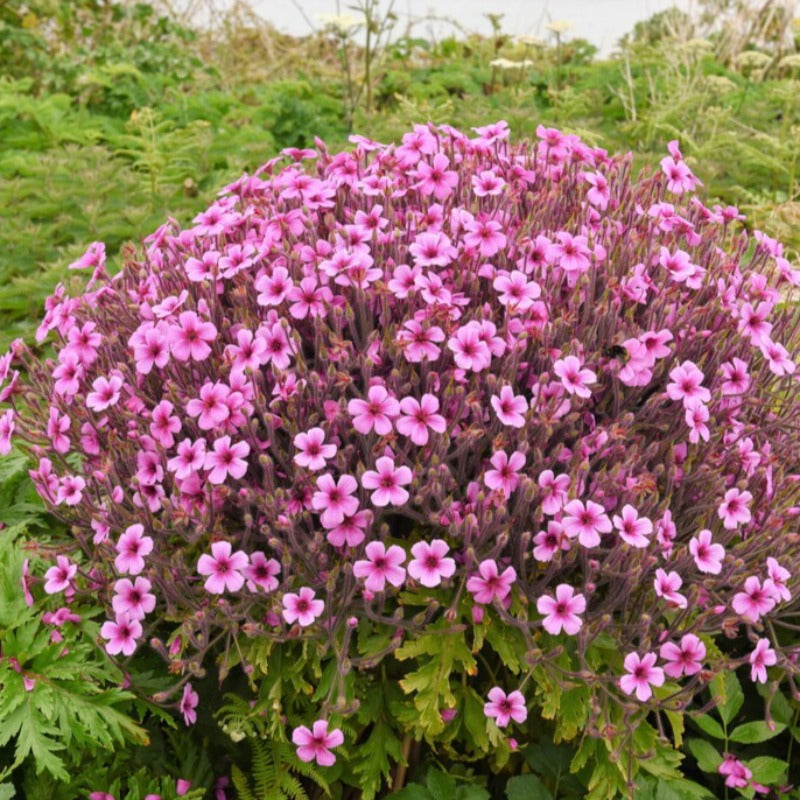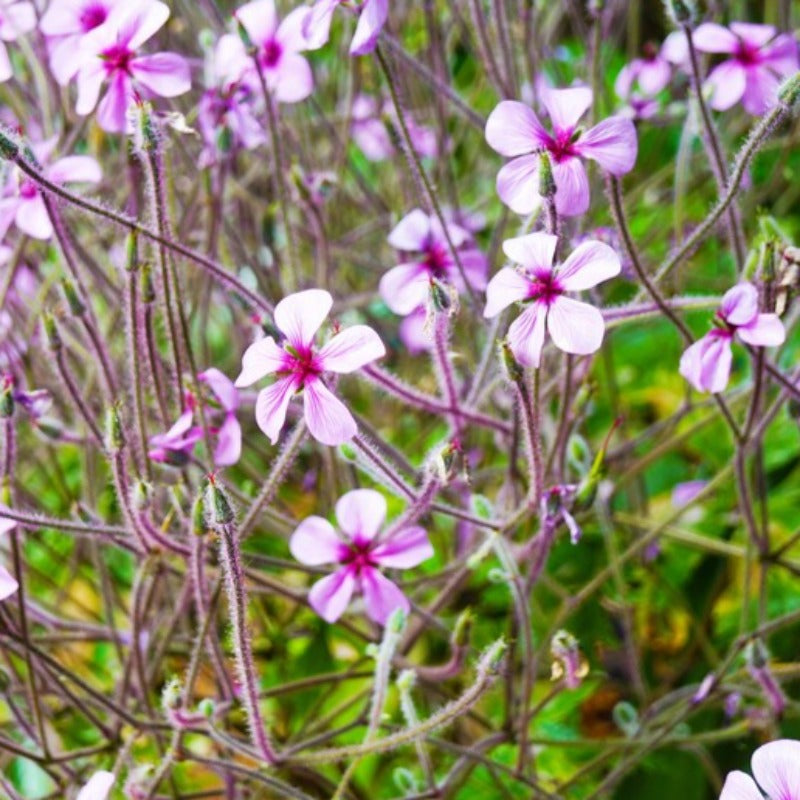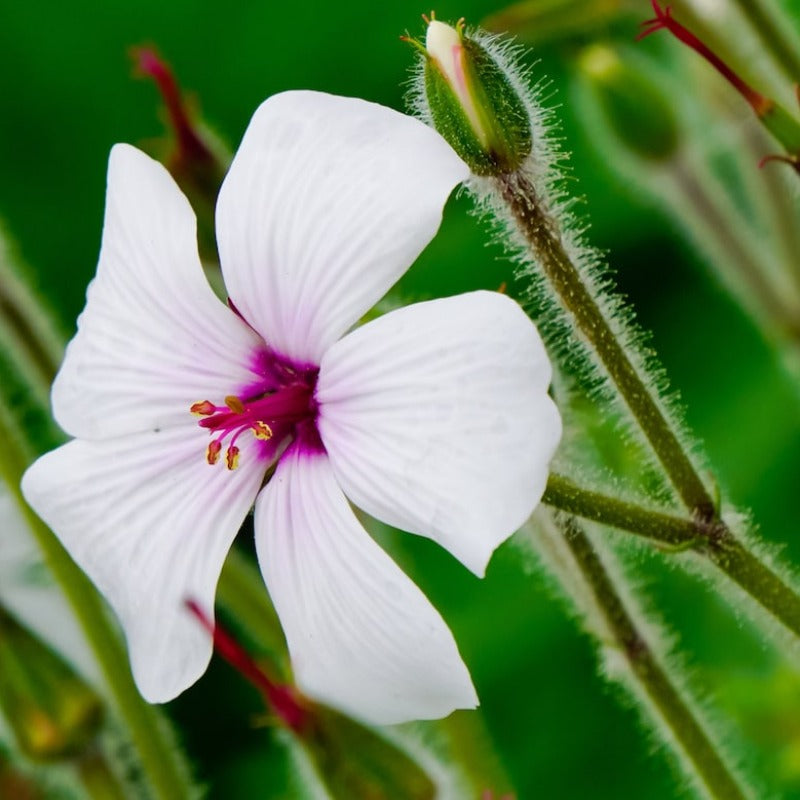- Historical context: The Madeira Geranium, also known as Geranium maderense, is a species of flowering plant in the Geraniaceae family. It is one of the most spectacular species within the Geranium genus.
- Geographical origination: As the name suggests, this plant is native to the island of Madeira, which is part of Portugal.
- Relevant cultural significance: The Madeira Geranium is a popular ornamental plant in gardens and parks due to its large, showy flowers and attractive foliage.
- Time period of discovery: The exact time of discovery is not well-documented, but it has been known to Western science since at least the 19th century.
- Original habitat: This plant is native to the subtropical climate of Madeira, where it grows in rocky areas and on steep slopes.
- Notable historical uses: Historically, it has been used primarily for ornamental purposes.
- Ideal temperature range: The Madeira Geranium prefers a mild, subtropical climate. It can tolerate temperatures down to about -5°C (23°F).
- Soil type: It prefers well-drained soil that is rich in organic matter.
- Sunlight requirements: This plant prefers full sun to partial shade.
- Watering needs: Water regularly, but do not overwater. The soil should be kept slightly moist, but not waterlogged.
- Planting season: The best time to plant Madeira Geranium seeds is in the spring.
- Germination time: Germination usually takes 2-3 weeks.
- Growth cycle duration: This plant is a biennial, meaning it completes its life cycle in two years.
- Common pests and diseases: Common pests include aphids and caterpillars. Diseases can include leaf spot and root rot.
- Companion planting advice: Madeira Geraniums can be planted with other subtropical plants that have similar light and water requirements.
- Common challenges and solutions: One common challenge is overwatering, which can lead to root rot. To prevent this, ensure the plant has good drainage and do not water excessively.
- Nutritional values: As an ornamental plant, the Madeira Geranium is not typically consumed and therefore does not have notable nutritional value.
- Health benefits: There are no known health benefits associated with this plant.
- Culinary uses: This plant is not typically used in cooking.
- Medicinal uses: While some species of Geranium are used in traditional medicine, there are no known medicinal uses for the Madeira Geranium.
- Other unique advantages: The main advantage of this plant is its ornamental value. It produces large, showy flowers that can add a touch of tropical beauty to any garden.
